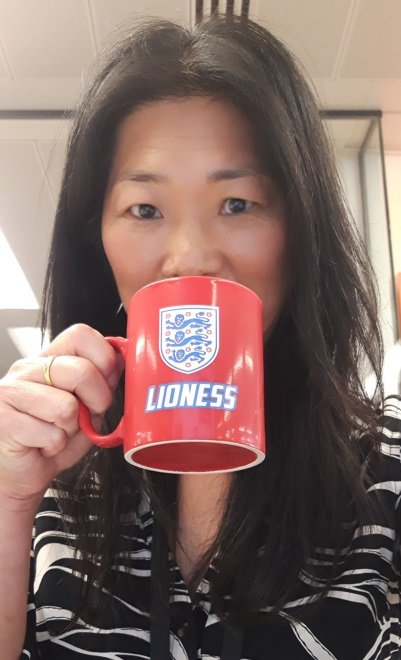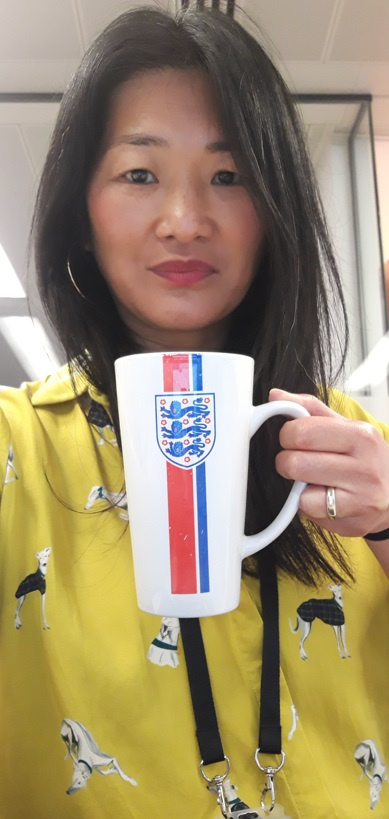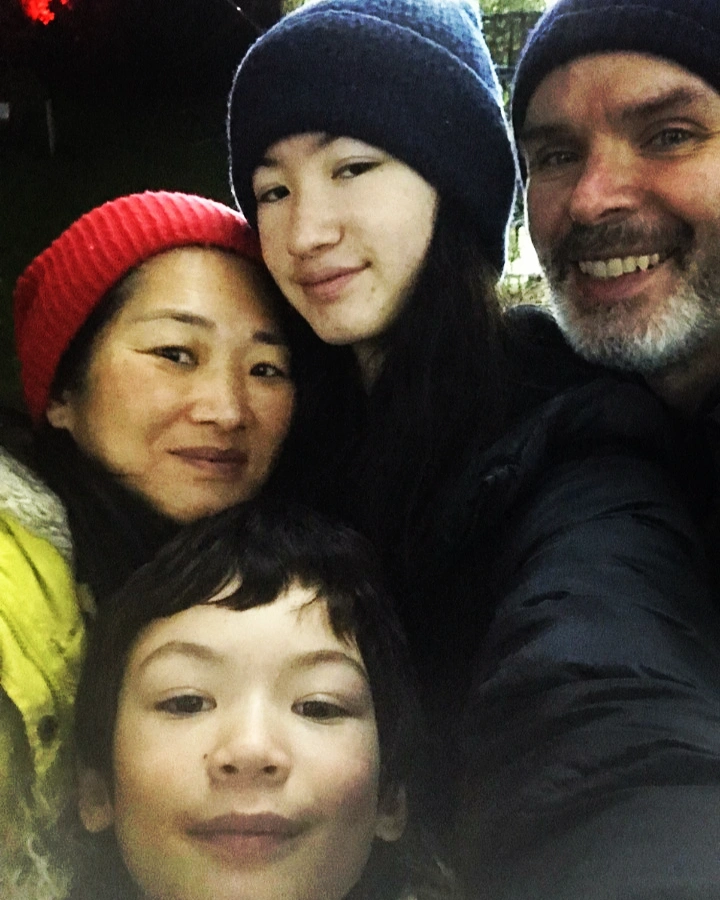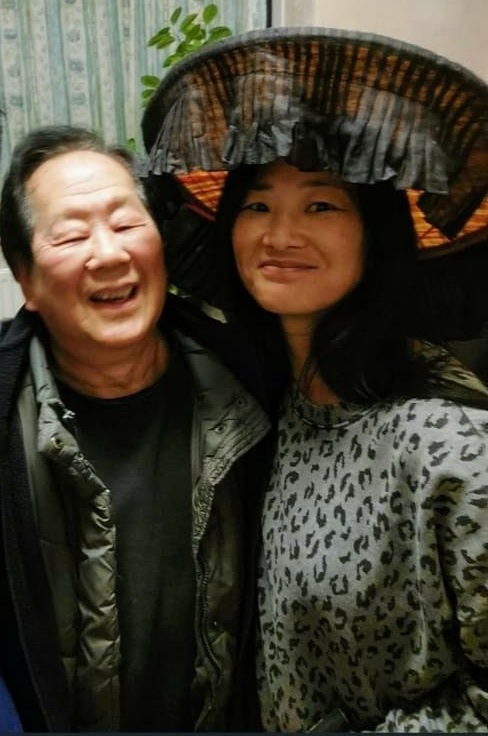How did you get there? Lee Chan

Great to hear from Lee Chan who is currently the interim Behavioural Insight Manager at the Football Association, and who is also a trustee of the Social Research Association and Diversity and Inclusion lead there. She is also a member of Social Researchers of Colour (SroC) and an advocate for Colour of Research (CORe), a member of the Market Research Society and Fellow of the Royal Society of Arts and Manufacture. Lee is an experienced social researcher and collaborator in evidence based policy and campaigning.
So, how did you get into the industry, and take us through how you got to this point?
When I was at university, I really didn’t want to follow the path that was expected of me – to be a lawyer, doctor or dentist. I was interested in understanding more about society and social and political trends, and so I studied social and political science – much to the bafflement of my father and wider family. This proved to be a great basis for a future career in research, although I didn’t know it at the time – being 18 years old!
After I graduated, I was then offered a place at Harvard to do an MPhil but in the end, we couldn’t afford the fees and living costs. My hopes of being an academic researcher were dashed. I didn’t know what to do because I didn’t think research existed outside of universities.
I succumbed to pressure and applied for accountancy jobs. When I got the offer to join a major accountancy firm, I realised this was not what I wanted, it was what others wanted for me. So I promptly changed tack and applied for a graduate trainee scheme for a well-known opinion and political polling agency – which I discovered reading the Guardian newspaper job adverts. I really did not know what a career in commercial research meant but applied for the scheme nonetheless because it appealed to my skills and strengths and would to some extent satisfy my need to be curious about society.
Since being trained as a mixed methods social researcher, I have worked in different stakeholder engagement, research and insight roles across a number of sectors. It has been a very squiggly but varied career involving pivots from market research into strategic consultancy (Office for Public Management now called Traverse), then into local government (Camden Council), back to market research (Ipsos MORI), the charity sector (the Consumer Association which is the charitable arm of Which?), and most recently, the Football Association – which is also not-for-profit.
When you review my CV (even I have to admit it’s pretty awesome) it looks like I have been carefully and deliberately curating a career working at organisations that are best in show. For instance, when I became the manager of the policy research team at Camden, it was just voted Council of the Year. But at the time, it never felt like I was consciously doing that. I was just joining organisations that I felt had a mission or values that chimed with my own. More on this later, as it is very important.

Career paths are rarely without challenges. Can you share an honest moment from your career when things didn’t go quite according to plan, but the lessons remain with you to this day?
There are two lessons. The first is that I went through a redundancy process in one of my jobs and it was a real shock to me, as I had always worked hard and there were no performance issues. It had a very profound effect on the way I approached work from then. I have learnt that you really do need to get over any embarrassment about self-promotion and keep a log of your own achievements and share them. You need to help your organisation understand the value you add and no one else is going to do that for you.
The second lesson is one of resilience and seeking allies. It’s a story I have told before – the D&I journey is a long one, and researchers from marginalised groups need to have staying power and resolve to navigate what is still a highly middle class and white environment. In the early years, I did not speak up about bullying, sexual harassment, discriminatory practice and other unacceptable behaviour as I felt alone and disempowered. These days, organisations have staff forums where you can seek allies, or there are networks like SRoC and CORe where you can hear other stories to get inspiration from. I think this is called setting up ‘your own personal advisory board’. I now ask questions and challenge. I’m more willing to call out bad behaviour or practice if I see it and I’ll get my besties to support me in it.

What two things should junior researchers focus on as they progress in their careers?
For me, the values of an organisation and what they want to achieve are really important motivators for doing your best work. I would say, look for organisations you want to work for and worry about the specifics of the role afterwards. I especially advise women to think about their careers in this way, I know some academic and behavioural studies show that women are less likely than similarly qualified men to apply for the same job because they don’t feel they fit enough of the criteria. When I applied for my current role at the FA, I didn’t think that I had all the essential criteria but I really wanted to be part of their journey to make Football for All, and I expressed this very clearly at interview and said I was prepared to quickly learn new things crucial to delivery. And here I am, at Wembley about to learn a new survey platform!
The second thing, is if you are not getting the learning opportunities you need or access to the prestigious projects and people that that help advance your career, make those opportunities for yourself. You can start with small things, like volunteering to do some non-project or corporate scheme that will upskill you in some way such as buddying, giving a lunch time seminar, writing a blog. Then you can progress to bigger things – I have volunteered in various roles to take on data compliance, emergency planning, team intranet content and so on.
If your organisation is not willing to let you try these things, you can always look outside and contribute to research based organisations as an occasional contributor, a volunteer or trustee. This is also a strategy I have employed for some time and even though it can be tricky juggling homelife, work and extra curricular research activities, you will be able to gain new knowledge, new contacts and upskill yourself.

How do we ensure that students and those leaving school aspire to join our sector?
There is a lot that can be done – where do I start? Three things spring to mind, initially.
For a start, leaders within organisations need to be more honest and vocal about how important evidence and insight is to their success. They need to talk about researchers with the same respect as they do with other skilled professionals like marketing and campaigns, product designers and content writers etc. It’s important to elevate the strategic importance of good evidence for decision-making. Full stop. Otherwise, the image of the sector will remain that of back-room nerds who just collect data. Forever the bridesmaid, never the bride. That’s not appealing to young people.
The opportunities and skills that you can obtain in research or insight roles should be highlighted too. The technical, operational and management side of things are given far too much emphasis in job specs and interviews. A second degree? It makes me mad when I see things like that on job specs. Many aspects of the job can be learnt and we should be looking to explain that to deliver effective research you need to be able to understand behaviour and culture, know how to communicate findings, be able to embrace cutting edge technology and work well with others and learn from your team – these are all things that should excite young people and are skills many will have but have not considered transferable from their existing context.
Finally, my daughter is in year 9 at a big London comprehensive school and is already getting a lot of a careers talks and information. I don’t think that she would even know about research and insight if I wasn’t her mum and it’s quite clear that these roles are not really known to schools. It’s not good to rely on old boy networks and on ‘who you know’ for that information, so I do think we have much more to do to get into schools and make sure research and insight is an option for curious young people.
Having said this, I am aware that there are schemes starting up to widen access to research among young people from diverse backgrounds such as that run by the MRS. I can’t wait to see how that goes.

Do you have any advice for our sector?
Organisations should make it a priority to build a culture that is supportive, inclusive and compassionate and to also have diverse workforces. I believe if you have a diverse workforce who can bring their whole self to work, it can only mean that research and insight is all the better for being shaped and designed from different perspectives and from having varied contributions. They can do this through inclusive leadership and by setting up various routes for people to express their views and make their contributions, including things like staff forums.
Finally, we’ve all been through the mill, these past few years. In many ways, it has taken the shared trauma of a pandemic for employers to realise you need to look after your staff and prevent ill health. This must continue and we must try to understand that even in ‘normal times’ there will be colleagues who experience multiple disadvantages and have historical traumas they are dealing with and therefore may need support to look after themselves properly while doing their best work. This means stopping people working long hours, not springing surprise deadlines on them without taking other burdens away from them and so on. If someone has trouble setting boundaries, do not take advantage of that.

And do you have anyone who has helped your career so far that you’d like to acknowledge and say thanks or give a shout out to?
There are many people I’d like to thank because they were supportive in my choices and listened to me work through my problems, rather than given me practical career help.
First there is my husband Mike, who is my biggest cheerleader. He makes me feel like I can do anything and I am grateful to have a life partner who lifts me up (and does his fair share of child care).
I have had some great conversations with my own personal advisory board composed of awesome people I have met over the years who know what it is like to be a researcher of colour (and often from a working class or immigrant background). These include Rezina Chowdhury previously at Natcen, my numerous associates at Social Researchers of Colour, the membership of MOSAIC forum at Which? Including Judith Abeydeera and my fellow trustees on the D&I group at the Social Research Association including Naomi Day of Daylight Research.
My friend Patrick Olszowski CEO of Outrageous Impact Ltd got me through the pandemic with some laughs, and he also set me some challenges which pushed me out of my comfort zone. For instance, I did my first live podcast and first recorded podcast because of him. On paper, we shouldn’t work together, as we’re polar opposites in terms of background!
And my final thanks are to David Henderson who is the newly appointed Communications and Insight Director at Maggie’s Centres. He recently coached me and we worked collaboratively to help me see my achievements, skills and career choices in a different way. We also had fun in amongst the challenge. Enjoyment is paramount!